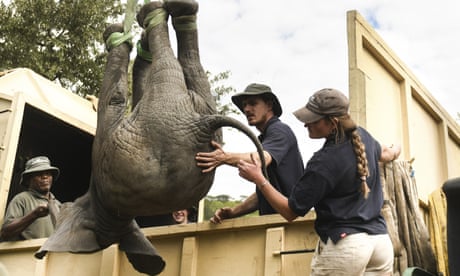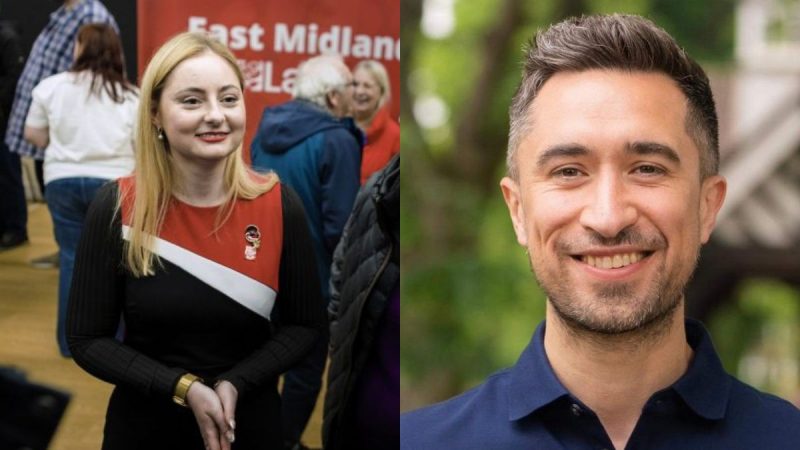Ecuador: journey from “island of peace” to “narco state”

“Neoliberalism is a dogmatic doctrine designed to prove the failed theory that the market can solve everything. A theory where people are the last thing that matters.”
Fidel Narvaez, former Ecuadorian consul in London, recently addressed the Latin America Conference 2024. You can read a published version of his speech below.
Many of you will remember well how until just six years ago, right here, conference after conference, we celebrated the progress of a small country that surprised the world with a progressive revolution. In the 10 years of the Citizen Revolution, from 2007 to 2017, Ecuador was an example of how to reduce poverty and how to reduce social inequality. The country was a respected regional and international voice in the fight for a multipolar world and was marked as a nation that privileged human beings over capital. It was the first country whose constitution granted human rights to nature and was the first to declare universal citizenship and the right to migrate within its constitution.
Alongside this, the country was an example of refugee protection with the case of Julián Assange being the most emblematic of this policy. It was fair to say that my country made the world news for what it did well rather than its mistakes.
However, Ecuador today is not even a shadow of that country. Ecuador is in the news today for what it does wrong; from having one of the worst approaches to tackling the Covid pandemic, which saw images of corpses lying in the streets appearing in the media around the world. To the nation becoming a hell of violence marked by prison riots and massacres, shootings and gang executions, even murders of presidential candidates. It is this reality that sees a new wave of emigration once again escaping in search of security and better opportunities for social progress in fellow Latin American nations.
Of all our crippling problems, insecurity in the face of crime has become the biggest. I am going to focus mostly on the analysis of this issue, because it summarizes well the destruction of the country in its entirety. In 2017, the last year of Rafael Correa’s government, Ecuador had become the second safest country in Latin America, with an average homicide rate of 5.8 per 100,000 inhabitants.
Last year, just 6 years later, the country reached 45 homicides per 100,000 inhabitants. This is a shocking increase of almost 8 times more, which has seen us become the most dangerous country in Latin America and one of the most dangerous in the world. Under Correa, Ecuador was just a minor player in the international drug market. Today it is the main point of origin of drugs entering Europe.
What happened? Why, did Ecuador so suddenly turn from “island of peace’ to “narco-state”?
Certainly, such a brutal phenomenon is the combination of external and internal factors. Many analysts, mistakenly, give greater weight to external factors: there is a certain reconfiguration in international markets and Mexican cartels have expanded towards the South; yes, that’s true. Ecuador is a dollarized country and that facilitates money laundering, yes, but the dollar has been the country’s currency since the beginning of this century. Ecuadorian ports have a convenient geostrategic position for drug transportation, yes, but those ports have been there since Ecuador has existed.
The main reason for the destruction of Ecuador is neoliberalism. The radical change between a strong state economy which saw strong social investment in education, in health, in housing, in culture and focused on aiding the most vulnerable of the population. Towards a neoliberal economy marked by the reduction of the state, of cuts to social investment and, its tight focus in favouring the richest classes.
Throughout Correa’s presidency the strong state equipped the police very well, paid them decent salaries, reformed the prison system, created a Coordinating Ministry of Security, a Ministry of Justice and Human Rights, and a school for prison guides. Even the US Drug Enforcement Agency celebrated ‘the excellent results obtained by the anti-narcotics police’ under the Citizens Revolution.
The reduced state, on the other hand, has dismantled practically everything. Under the supervision of the IMF, budgets were cut, and thousands of people were laid off. Poverty and social inequality have grown substantially.
Neoliberalism is a dogmatic doctrine designed to prove the failed theory that the market can solve everything. A theory where people are the last thing that matters. Lenin Moreno (yes, his name really is Lenin), in the middle of the pandemic, when investment in health was most needed, reduced the health budget and laid off thousands of doctors and prioritized payments of foreign debt to international financial institutions.
As a result of this pandemic, thousands of children and young people never returned to school. Many of them today are members of narco-criminal groups. The penitentiary system saw its budget cut by 30% and several ministries related to security were closed. The level of penetration of organized crime in the public force, especially in the police, but also in the justice system is such that Ecuador borders on becoming a failed state.
The new president, the son of the richest man in the country, certainly faces a difficult situation. A couple of weeks ago he declared a state of internal war and declared 22 criminal groups “terrorists.” Faced with the ineptitude and inaction of the two previous presidents, Lenin Moreno and Guillermo Lasso, any action that shows a willingness to do something is well received by the population.
In my opinion, we are facing the shock doctrine. Neoliberalism takes advantage of an extreme situation, when the population is afraid and hopeless, to implement its most extreme version. Typically, this happens after a natural disaster or war, or an economic blockade. In the case of Ecuador, however, the only cause of destruction is the neoliberal weakening of the state.
The context of “internal war” leads to abuses in the use of force by the army and the police, behind a dangerous narrative that the human rights of “criminals” are less important than those of “good people.” A narrative of heavy hand and repression that criminalizes poverty, tolerates torture, and encourages more violence.
The context of this internal war also marks a greater rapprochement with the United States. Bilateral security ties had already been strengthened over the past five years, particularly under Lasso. But in October 2023, a cooperation agreement opened the door to a US military presence in Ecuador, which renounces some of the basic principles of its sovereignty and grants full immunity to US personnel.
In short, the Americans who left progressive Ecuador under Rafael Correa, now return and will be able to use our land, maritime, aerospace, radioelectric space as they wish, and with diplomatic immunity they will not pay any taxes and will even be able to commit any crime, because the Ecuadorian justice system won’t even be able to point a finger at them.
Ecuador is the best example of how neoliberalism can destroy a country and as such is a vital lesson both for any involved in solidarity work with Latin America and those fighting for a future dedicated to improving the lives of the many.
- Fidel Narvaez is the former Ecuadorian consul in London.
- The Latin America Conference 2024 was held on January 28th, 2024. You can find out more about the conference on Twitter/X here.













